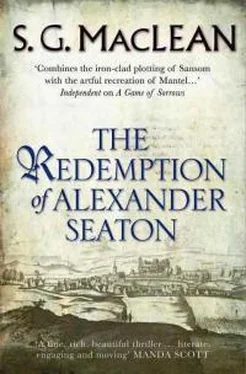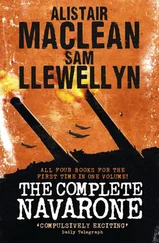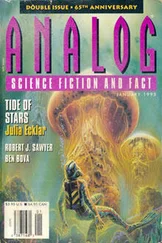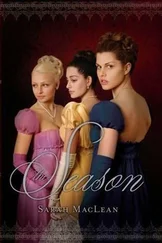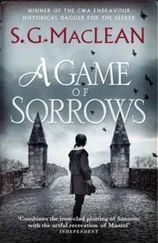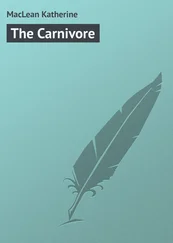‘Yes, but many of our countrymen continue to travel and study in the Spanish Netherlands. Is it to be imputed to them all as a crime?’
‘Of course not. But while at Antwerp he studied at the studio of Pieter Paul Rubens. You have heard of Rubens?’
‘Art is not much talked of in Banff, but yes, in my days here, even I heard of Rubens.’
‘But you will not know – indeed why would you? – of Rubens’ diplomatic activities. When I am in Edinburgh on business, I am often in company at the dinner tables of the advocates with the wealthy merchants of Leith. They have a better knowledge of the doings of folk in the Low Countries and the Baltic than they do of ours here. Rubens is well known as an agent of Madrid – nothing passes in Antwerp but he posts his own account of it to his masters. It is no secret. But more also, he is in the pay of the Medicis – the dowager of France. Little intrigue passes between the exalted heads of Romism that Rubens does not know of; little occurs in the Netherlands that he is not able to inform his Spanish masters of.’
Less than a week ago I would have thought my friend lost to the puffed-up gossips of our capital and its sea port. What relevance could such nonsense have for the burgesses of Banff, for Charles Thom, for myself? But the death of Patrick Davidson and the discovery of his practice of cartography had changed that. ‘Is Jamesone suspected for a Spanish spy?’
William shook his head. ‘No, he is not – at least I have never heard rumour of such a thing and,’ here he smiled, a little shamefaced, ‘there are few rumours that pass me by.’
‘But do you think it is possible?’
‘I think many things are possible, and that most men have their price. Jamesone moves freely in the circles of the great and the powerful. But as he is a painter, he provokes little jealousy or suspicion. In fact, I would be hard put to think of an occupation better fitted to the business of espionage. But no, on balance, I do not think it likely he is a traitor.’ He rang the bell for the girl to come and take the carcass of crab away, and bring us our meat. I could see he was still troubled. After the girl had gone he did not immediately touch the food, but returned to our conversation. ‘But what were you doing there, Alexander? What business did you have with him?’
I felt my mouth go a little dry. ‘I had a letter to deliver to him from the provost of Banff.’
‘Did you see the contents of the letter?’
I shook my head. ‘He, Jamesone, told me what the gist of it was, but no, I did not read it myself. It was – he said – to do with a commission to paint the provost’s family. I have in my room in your house the artist’s reply.’
I thought I saw my friend flinch, but only for a moment. ‘You have not read this letter?’
‘It is sealed.’
He pushed his fingers to his temples in thought. ‘Then you must deliver it. You must go to Straloch as soon as you are able and fulfil your commission there, and then you must return to Banff, deliver this letter and hope to keep yourself from the provost’s further notice.’ At that moment I felt I would gladly never have seen the provost, or the town of Banff again. But duties and promises called me back there, and there I would go. We resolved that I would leave Aberdeen a day early, as soon as the Sunday sermon was over. The laird of Straloch would forgive my Sabbath intrusion when he learnt the purport of my business.
We talked late, and when we finally left Bella Watson’s house it was with little greater ambition than to lie down and rest our heads as soon as we might. As we walked we kept our voices low and kept ourselves to the main arteries of the town – all manner of creatures might wait in the darkness of vennels and winding lanes for unsuspecting night travellers. The near-full moon carved out the houses looming over the Castlegate, but gave us less guidance on the narrower, more winding streets, whose tenements tottered three storeys above us. Shadows lurked under forestairs and beyond pends. A snarling dog drew its owner to a window and was silenced with a curse as we passed. We kept as far as we could to the middle of the street to avoid the muck and ordure in the gutters. As we turned onto the Flourmill Lane, some movement at an upper storey caught William’s eye and he put his hand on my arm to stay me. I followed the direction of his gaze and saw a flicker of light at the top of the backland stairway of a house I knew well – Maisie Johnston’s, forever in my mind as the place where Archie and I had had that last evening together. A crook in the wall obscured us from view, and we were able to watch the dumb-show at the top of the stairs. It was Maisie herself, and although her face was obscured by a shawl, the other was certainly a young woman. Maisie was casting her eye about her, and speaking to the younger woman in low but urgent tones. William whispered to me, ‘This is not like Maisie. She takes a great care not to draw attention to her establishment, and to avoid the wrath of the session.’
‘But everyone knows what manner of house Maisie’s is.’
‘Everyone knows, but Maisie does not flaunt it. She does not give room to vagrants to ply their trade. Her girls are never to be found abroad at night, and that is the way Maisie and the council and the session like it.’
Maisie gave one final sweep of the street with her eyes, then handed the young woman a pouch before embracing her briefly and ushering her down the stair. As the young woman took her leave, her shawl slipped a little and I had to stop myself from calling out. The pend gate opened and I was face to face with Mary Dawson. ‘Mary,’ I began. The girl opened her mouth as if to reply, but her momentary recognition had been replaced by a look of sheer terror. Almost losing her bundle, and with her shawl now trailing behind her, she pushed past me and ran. William had a hold of my arm and it was several seconds before I was able to shake him off.
‘Alexander, for the love of God – the woman is a whore. Is she known to you?’
I gasped a brief reply and then made after her, with William soon at my heels. I could not see initially where Mary had gone, but the sound of her running feet on the cobbles directed me to a vennel behind the lane and towards the kirkyard. Two or three times I almost stumbled, being less accustomed to this night running than was Mary, who had often had to take to her heels to avoid being caught in the performance of her nocturnal trade. William caught up with me as I reached the kirkyard. ‘I will explain later,’ I told him breathlessly, ‘but I must talk to this woman.’ I scanned the jutting slabs that gave memory to generations of indwellers past and long dead, and the mounds and humps of earth where the poor lay scarcely noted, but could see nothing of Mary Dawson. Bats swooped and whirled from the steeple of the church and amongst the trees in the kirkyard. An owl hooted and I imagined I could feel and hear every scuttling thing about my feet. She could have been hiding anywhere amongst the graves, for I was sure she could not have left without being seen. I gambled and started to make for the kirk itself. As I did so I caught sight of a swift movement out of the corner of my eye and then saw Mary Dawson running out towards the Netherkirkgate, as if all the creatures in Hell were after her. I checked my path and ran after her, William still with me, although comprehending no more than he had at the start of my pursuit. Mary was clearly no stranger to Aberdeen, for she knew the lanes and vennels of the town better than I myself could remember. From the Netherkirkgate she headed down west of St Katharine’s Hill by Putachieside towards the Green. The smell of the tanners’ and the litsters’ work still hung in the night air, although they had long since gone to their weary beds. I almost lost her at the Green, a cat having darted out from behind a midden, nearly sending me into the Putachie Burn. As I righted myself I could see no sign of her, but a movement ahead had me starting off again in the direction of the ruined Carmelite friary. William, bent double with so much running after such a dinner, grabbed at my cloak, gasping.
Читать дальше
